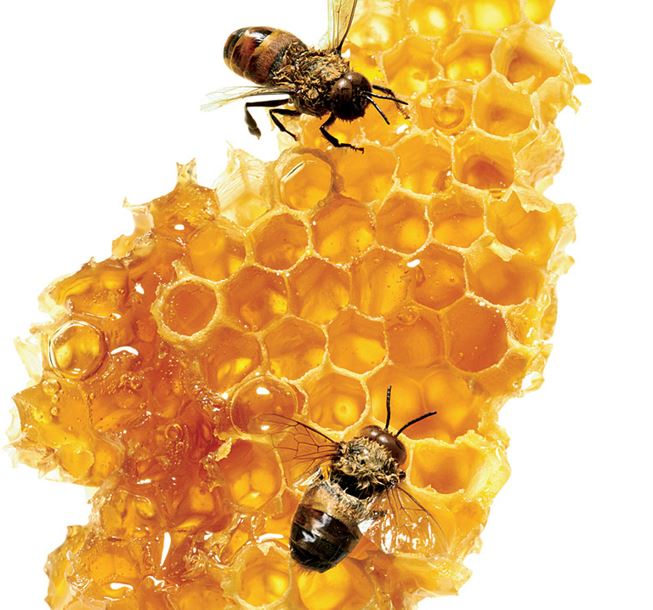Xesús Feás has a keen interest in preserving honey bees and is researching in many areas to protect their future. It is clear that there is a threat posed by the Vespa velutina and the invasion and death they cause to the honey bee given the fact that the vespa veluta can take over an entire bee hive killing all the bees in just hours. Let's imagine this continues what would it mean.......
Life without honey beesLife without Honey bees is an inconceivable concept… The loss of the honey bee could mean that we may lose all of the plants that bees pollinate and so on up the food chain with all of the animals that eat those plants. The effect could be catastrophic causing crop yields to fall dramatically, global economic hardship and with this the added possibly of famine until alternative cultivation systems and crops could be developed. |
Worryingly we are losing bees at an alarming rate due to many possible reasons including the loss of flower meadows, mites, climate change, pesticides and the dangerous Vespa velutina (Asian hornet) as only a handful of hornets can destroy an entire honey bees nest in just a few of hours. Read more about the vespa velutina, their characteristics and Watch a video showing footage of the Vespa velutina attacking honey bees.
Read more about the fast spread of the Vespa velutina to understand how they threaten the bee population by clicking the button below...
Read more about the fast spread of the Vespa velutina to understand how they threaten the bee population by clicking the button below...
The importance of honey bees
As far as important species go, honey bees are top of the list because they are critical pollinators. Honey bees are a very important part of nature. Bees play an incredibly important role in agriculture as pollinators as many plants and trees rely on bees to spread the pollen they collect.
Honey bees fly from flower to flower, sipping nectar and collecting grains of pollen. Bees use the pollen for making honey, but they drop some along the way onto flowers and trees. Pollen helps fertilize other plants. This helps the flowers and trees reproduce. Honey bees suck up the nectar, storing it in their throats until they get back to the hive. The hive is where they turn the nectar into honey to use for food, whilst cereal crops are wind pollinated virtually all fruit and many vegetables are insect-pollinated, mostly by bees.
Honey bees fly from flower to flower, sipping nectar and collecting grains of pollen. Bees use the pollen for making honey, but they drop some along the way onto flowers and trees. Pollen helps fertilize other plants. This helps the flowers and trees reproduce. Honey bees suck up the nectar, storing it in their throats until they get back to the hive. The hive is where they turn the nectar into honey to use for food, whilst cereal crops are wind pollinated virtually all fruit and many vegetables are insect-pollinated, mostly by bees.
© 2017 Xesús Feás ALL RIGHTS RESERVED
Linking and Sharing If you want to Republish any information on this site please SEE RULES HOW. It's Free.
Linking and Sharing If you want to Republish any information on this site please SEE RULES HOW. It's Free.

